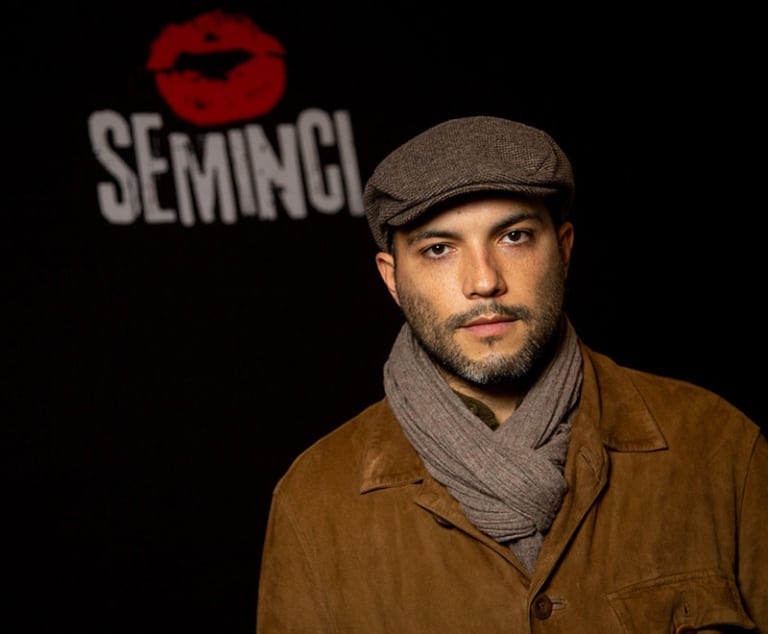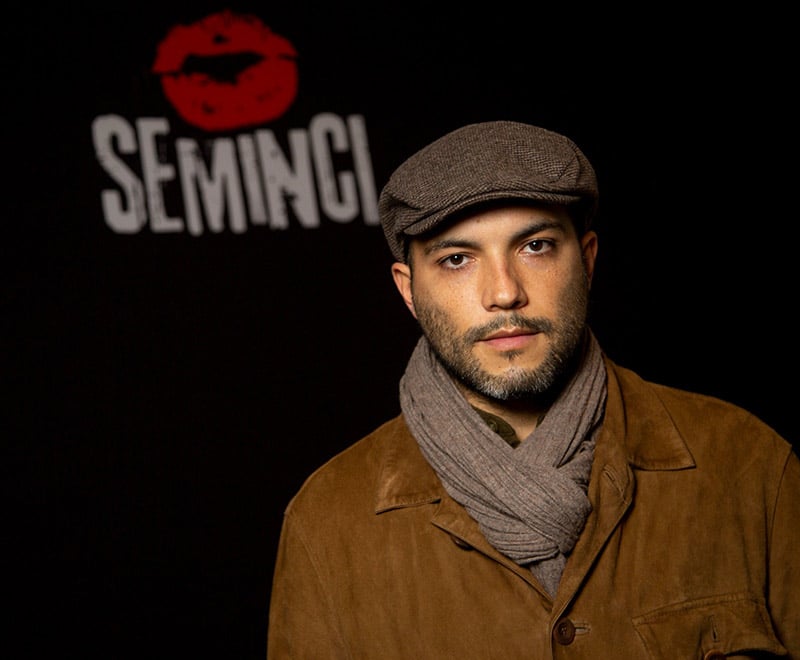
Alejandro Telémaco Tarraf, director of ‘Lonely rock’
- Argentine filmmaker Alejandro Telémaco Tarraf presented this Monday at Teatro Zorrilla his feature film ‘Lonely Rock’, a project that grew out of the director’s passion for the narrative of Atahualpa Yupanqui.
26/10/2020.- “My fascination for his books led me to travel to the north of Argentina, a place where I met Ricardo Fidel Tolaba, the protagonist of the film; and it was there that the idea began to take on a life of its own”, says the director.
A llama herder who lives in the village of Cóndor and makes a living, together with his son, out of selling the meat and wool of the animals. A story shot at more than four thousand meters above sea level, which, says the filmmaker, made special demands on the crew: “We needed more time to acclimatize”. It took Alejandro Telémaco five years of work to get his first feature made. It was a time filled with difficulties: expensive above-the-clouds scenes had to be shot and several periods of adaptation were required. “I spent a year living in the Puna, travelling back and forth; but we felt that we had to portray the characters from within”, said the director.
Lonely Rock is a story told from three different angles and, unlike most feature films, it was shot along several phases: the first filming work was documentary, the second was fictional, and the third stage involved sound recording.
For Tarraf, one of the main premises of the film is Robert Bresson’s phrase: “The eye sees, but the ear imagines”. For this reason, the filmmaker highlighted the meticulous work behind the film: “It was essential to capture the nuances. In the film we talk about a mystery, and this is why we needed to capture all of that natural energy. That is why we had to arrange the third sound-only trip”.
The characters have also been a key element in the movie. The director knew from the start that he did not want to work with actors. “The face of the people represents the territorial and spiritual geography of the place. I wanted to make a mysterious film, but always staying faithful to the culture of the Puna”, he added.
Finally, he thanked the invitation by the 65 Valladolid International Film Festival and stated that it was “an honour to be able to present Lonely Rock at a festival that is so much admired in Argentina and has such a long history”. He further added that given the current health crisis caused by COVID-19, being able to travel to Valladolid to present his film in a “sacred place” like a theatre had been “really amazing.”



























![Logo Foro Cultural de Austria Madrid[1]](https://www.seminci.com/wp-content/uploads/2024/09/Logo-Foro-Cultural-de-Austria-Madrid1-300x76.jpg)








